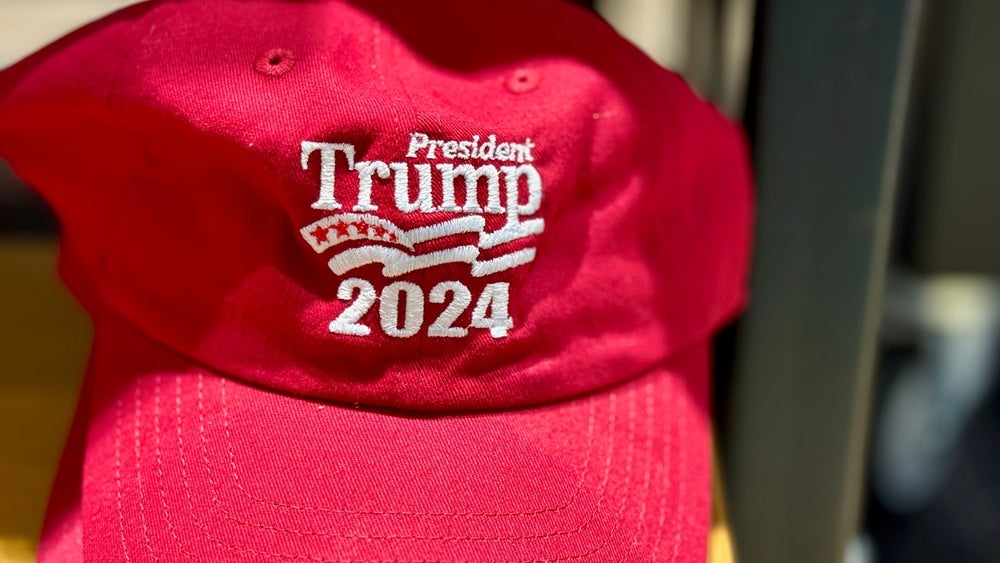As US President-Elect Donald Trump, who will return to the White House in late January 2025, appoints healthcare agency heads, industry insiders state that moods are mixed, varying from panic to excitement. Confirmation hearings early in 2025 will reveal more about the surprising nominees, who will rely on tough confirmation votes in the US Senate. The Trump nominees have a record of urging radical transparency on trial data, action on chronic public health crises and scepticism around vaccine schedules.
President-elect Trump has nominated Dr Marty Makary to head the US Food and Drugs Administration, Dr Dave Weldon to the Centers for Disease Control, Robert F. Kennedy, Jr as head of the Department of Health and Human Services, Dr Jay Bhattacharya to lead the National Institutes of Health, Dr Janette Nesheiwat as Surgeon General and Dr Mehmet Oz as the Centers for Medicare and Medicaid Administrator. Trump has also appointed ex-Roivant (London, UK) CEO Vivek Ramaswamy to co-lead the Department of Government Efficiency (DOGE), a role which does not require a Senate appointment.
“The choice of Makary and Weldon is like throwing a match into a powder keg — explosive and bound to stir up controversy,” stated legal expert Steve Sacona. “Makary, with his blunt critiques of healthcare, might charm some moderates, but he'll ruffle plenty of feathers among those who disagree with his direct approach.”
Many, including Audrey Greenberg, founder of the Center for Breakthrough Medicines in King of Prussia, Pennsylvania, agreed that the nominations of Makary and Weldon are controversial and stirring up discussion in the pharma industry.
"Makary and Weldon are known for advocating big changes to the US government's approach to chronic disease,” stated Kelly Ferguson, director of public affairs at Proven Media Solutions, who previously served as a healthcare advisor to a Republican congressman on the Republican Policy Committee. “In that way, they fit in perfectly with Trump's picks so far. With that said, Senate confirmation will require both men - particularly Weldon - to distance themselves from debunked claims about the safety and efficacy of vaccines.”
“It is important to remember that department heads do not make unilateral changes to policy but rather put forward plans that are then discussed in Congress,” said David Rochefort, government affairs director of Connecticut-based Revelation Pharma. “It will be very important that those nominees bring in experienced specialists within the field to help advise on policy.”
Makary – "surprising" but medically trained
Marty Makary, a professor of surgery and public health at the Johns Hopkins Bloomberg School of Public Health, was previously in the news when he criticised Covid-19 vaccine mandates and scheduling but supported the vaccines themselves. In 2021, he wrote a Fox News op-ed calling the FDA “broken” and “mired in politics and red tape.” The article gives strong clues to Makary’s priorities, if confirmed as its head.
- Faster drug review times, with rolling trials and evaluations in real-time
- Flexibility when new data suggests a change in dose scheduling
- Criticism of what he saw as the unscientific intrusion of politics into FDA decisions around Covid-19 vaccine booster schedules
- Makary criticised the FDA’s 1995 approval of OxyContin, which spawned the US opioid crisis, as well as Dr Janet Woodcock, who was director of the Center for Drug Evaluation and Research at the time, and later FDA head under President Biden
- Makary has claimed that drug approvals are “erratic” and subject to favouritism. He attacked the FDA’s approval of Biogen’s aducanumab for Alzheimer’s, a controversial decision that went against an Advisory Committee vote.
- Younger leadership of the FDA
Rochefort states that Makary is a less surprising appointment than Trump’s other agency picks, and his confirmation in the Senate is likely. Makary has a background in 503Bs – compounding pharmacies permitted to produce copies of drugs during shortages – that should prove beneficial, so as Rochefort went on: “he could be one of the first appointees that has a comprehensive understanding of drug shortages” and how to fix them.
Others were damning in their faint praise. "Most life science industry leaders are probably relieved by the nomination of Marty Makary to head the FDA,” stated Erik Wiklund, CEO of the Oslo, Norway-based biotech Circio. “Although Makary clearly lacks the deep experience in pharmaceutical development, regulatory affairs and public management necessary to be an efficient leader of the FDA, at least this surprising pick represents a highly trained medical professional advocating for scientific process and evidence-based healthcare, as opposed to some other nominees.”
Weldon claimed CDC "conflicted" on vaccines
Weldon is a physician whose vaccine skepticism was displayed in his proposed law in 2007 when he was a Republican representative for Florida, that would have moved responsibility for vaccines away from the CDC and into an “independent agency” within the HHS. “The CDC has responsibility for both vaccine safety and promotion, which is an inherent conflict of interest,” claimed the draft legislation.
The draft stressed the need for public confidence in vaccine safety and would have allocated $80M to “vaccine safety research and analysis” including investigation into the use of mercury in vaccines. Thimerosal is a mercury-based preservative once used in vaccines, but phased out in the US between 1999 and 2001. The CDC states that there is no evidence of harm caused by the low doses of thimerosal in vaccines, except for minor reactions.
Greenberg noted that Weldon has been vocal in his opinions on medical ethics, such as his 2005 intervention in the controversial case of Terry Schiavo, attempting to challenge the withdrawal of life support.
“Weldon, a known conservative, isn't going to win any popularity contests among Democrats either,” commented Sacona. “With the Senate's razor-thin Republican majority, every nomination feels like a high-stakes poker game.”
RFK, Jr – a polarising pick
Robert Francis Kennedy (RFK) Jr, appointed to head of HHSm is a better known - and even more controversial – quantity. How much of his pre-election big talk could come to fruition?
In a Twitter/X post 11 days before the US presidential election on 5 November 2024, Kennedy wrote: “FDA’s war on public health is about to end. […] If you work for the FDA and are part of this corrupt system, I have two messages for you: 1. Preserve your records, and 2. Pack your bags.”
But Ali Pashazadeh, CEO of healthcare advisory firm Treehill Partners, put this down to bluster. “I think what people say before they get into office and what they do once they're in office are going to be two different things. To appeal to the masses, you need to say, 'I'm going to shake it up and I'm going to tear it apart'.”
RFK Jr’s talk in recent days appears to have become more tempered, stressing data transparency. "The science on vaccine safety particularly has huge deficits, and we're going to make sure those scientific studies are done and that people can make informed choices about their vaccinations and their children's vaccinations," he said in a National Public Radio interview ofn6 November 2024.
Data transparency will be a big focus for the Trump administration, experts agree. Nature reported last month that 22% of US-registered clinical trials failed to report results. “Is there a way that we can actually increase the amount of data being generated so the next crop of companies in clinical studies have more data so they can figure out what to do and what not to do?” asked Pashazadeh.
Pashazadeh believes that initial reactions from the pharma industry to Trump’s election and nominees are overblown. Greenberg cautiously agreed: “While the FDA operates on checks and balances, its leadership influences direction. Substantial changes and extreme reforms will require broader consensus, not just changes at the top - and turnover takes time.”
Senate confirmations – rebellion among moderate Republicans?
Confirmation of these appointments isn’t yet assured; the Senate will have to vote to approve them early in 2025. The Republicans have a seven-seat majority – strong, but not unbeatable. Pundits speculated before the election that moderate Republicans could form a resistance to unpopular or extreme Trump actions or nominees. But is seven seats too many to overcome?
“Assuming all Democrats will vote against the President’s cabinet nominees, Republicans can afford to lose up to three votes from their side using the Vice President’s tie-breaking vote,” stated political commentator David Grasso of Project Amicus. “Still, any more than three party defections spell trouble for the administration’s nominees.”
“The red [Republican] wave has given the President-Elect some running room to secure key executive appointments,” said Ferguson. “But if he wants to hold the majority past 2026, he and his advisors need to be strategic about how many tough votes he will put the Republican Senate Conference through. For example, not many Senators of either party will be eager to explain to voters why they confirmed RFK Jr's picks for major health agencies."
On the other hand, Senators may feel that Trump’s election reflects a popular mandate for these appointees. “Many of the members are quite conscious and aware of President Trump's resounding victory with many Americans, said Cybil Roehrenbeck, a lawyer leading Hogan Lovells’ healthcare lobbying practice. “One of the things that President Trump campaigned on was this ‘MAHA’ [Make America Healthy Again] movement and his choice of RFK really follows.”
Senators to watch who might derail cabinet nominations are commonly understood to include Susan Collins (Republican, Maine) and Lisa Murkowski (Republican, Alaska), followed by Bill Cassidy (Republican, Louisiana), Thom Tillis (Republican, North Carolina), Lindsay Graham (Republican, South Carolina) and Mitt Romney (Republican, Utah).
"Senator Cassidy, while not exactly a moderate, is a health policy expert with an independent streak,” noted Ferguson, who worked as Medicare fellow for Cassidy when he was a Representative. “He is also up for re-election in 2026 in a ruby red state that won't like seeing their senator buck the President." Cassidy issued muted statements on Kennedy, Makary and Weldon’s appointments, posting that he looked forward to hearing more about their agendas.
The US healthcare sector forms 17% of the country’s GDP, with more than $2 trillion in spending from the HHS, and how that is used will be the focal point at the confirmation hearings, according to Roehrenbeck. She noted the Trump administration’s stated priorities for healthcare: “radical transparency to root out conflicts and corruption,” eliminating chronic disease “with quantifiable results within two years", which is a really, really strong and lofty commitment,” and making the US the world leader in scientific research. Other likely priorities are policies and regulations on the advertising of pharmaceuticals, vertical integration models in healthcare, offshore research and production of drugs, and the drug approval process, according to Rochefort.
"Panic" from most investors
Pashazadeh said Treehill is seeing “a lot of panic” post-election among the pharma industry and investors “and we still don't understand why.” Fear of change is paralysing, but “things have not been working well for four years so something needed to change,” he said, noting a “drought” among venture capitalists and few initial public offerings from industry.
A shake-up is needed, he went on, and it could include more transparency around clinical trial data, better government funding to prepare for the next pandemic – an unpopular target for professional investors – and improving drug development attrition. “I think these could be possibly exciting times,” he went on. The shock reaction the day after the election is starting to give way to investors “saying this could be a stimulus for change and to wait to make judgement. We go as far as saying - let’s embrace the change.”
In the meantime, Pashazadeh said, investors will be holding their breath until they learn more about nominees’ agendas from the confirmation hearings.
“From an investor perspective - and I spent a year at Goldman on the trading floor - this is one where you go and take a lunch break.”















